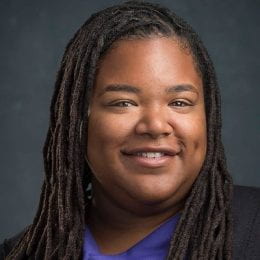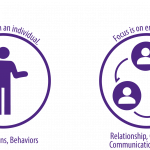In this special blog series, Leadership Communication doctoral student Jurdene Coleman considers how academic frameworks, research agendas, and the associated leadership studies literature contributes understanding and support to the exercise of leadership during the COVID-19 outbreak locally. 
COVID-19 is presenting our nation with countless adaptive challenges; public education is no exception. Adaptive challenges differ from technical problems in many ways. First a technical problem, while it may be complex, has an identifiable solution. An example in public education might be choosing which math curriculum to implement. Next, technical problems can be solved by an entity with the right expertise and using a known process for problem solving. If we keep with the curriculum adoption example, we typically have teachers volunteer to use one of several curricula and give feedback to administrators who then bring the final recommendation to the school board. Adaptive challenges on the other hand, can only be addressed through changes in people’s priorities, beliefs, habits, and loyalties (Heifetz , Grashaw & Linskey, 2009). Adaptive challenges require an organization to go beyond any authoritative expertise to mobilize discovery, shed certain entrenched ways, tolerating losses and generating the new capacity to thrive anew (p. 19). The new adaptive challenge is what does education in USD 383 school district look like without our classrooms and school buildings?
Continue reading “Adaptive leadership in public education during COVID-19”



